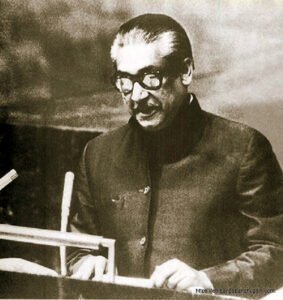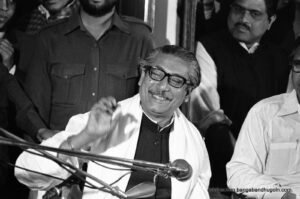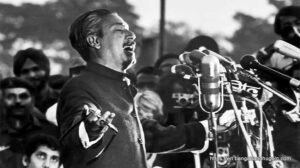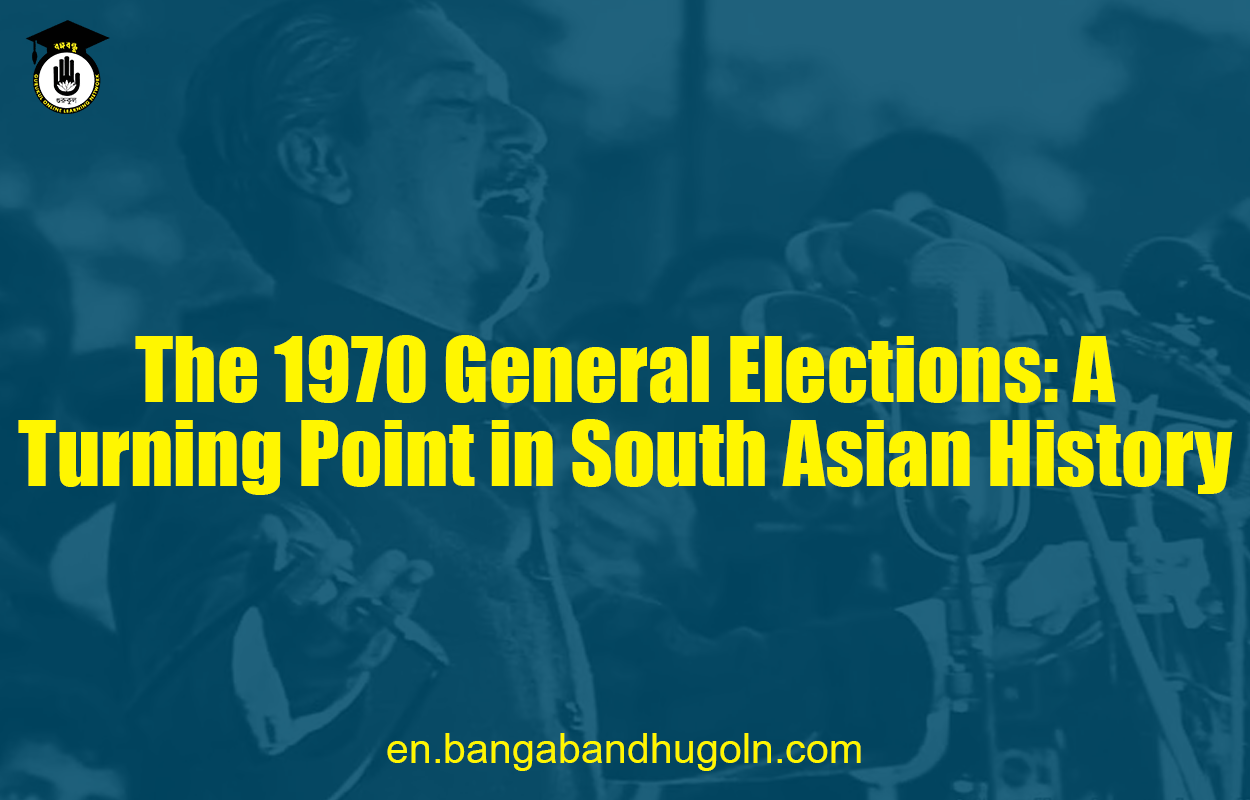The 1970 general elections in Pakistan were a watershed moment in South Asian history, shaping the political landscape of what would soon become two separate nations: Pakistan and Bangladesh. This election, held on December 7, 1970, was the first general election since the establishment of Pakistan in 1947 and remains one of the most significant events leading to the creation of Bangladesh.
Table of Contents
The 1970 General Elections
Background
The 1970 general elections were conducted against a backdrop of political tension and discontent, particularly in East Pakistan (now Bangladesh). The region had long been marginalized and economically exploited by the central government in West Pakistan. The disparity between the two wings of the country was stark, with East Pakistan contributing a substantial portion of the country’s revenue yet receiving little in return in terms of infrastructure and development.
This sense of alienation was exacerbated by the language controversy in the early 1950s, where the imposition of Urdu as the national language was met with fierce resistance in Bengali-speaking East Pakistan. The situation worsened over the years, culminating in a strong desire for autonomy within East Pakistan.

The Political Landscape
In West Pakistan, the political scenario was dominated by parties like the Pakistan People’s Party (PPP), led by Zulfikar Ali Bhutto, who championed socialism and the rights of the underprivileged. In East Pakistan, the Awami League, led by Sheikh Mujibur Rahman, had emerged as the voice of the Bengali people. The Awami League’s Six-Point Movement, which called for greater autonomy for East Pakistan, had garnered massive support in the eastern wing of the country.
The 1970 elections were viewed as a critical juncture for the future of Pakistan. They were the first elections to be held under universal adult suffrage, with 300 seats in the National Assembly up for grabs—162 from East Pakistan and 138 from West Pakistan. The election’s outcome was expected to determine the future governance structure of the country.

Election Results
The 1970 general elections were nothing short of a political earthquake. The Awami League, under Sheikh Mujibur Rahman’s leadership, won an overwhelming majority in East Pakistan, securing 160 out of 162 seats. This result gave the Awami League a clear majority in the National Assembly, with enough seats to govern without the need for a coalition. In West Pakistan, the PPP won 81 out of 138 seats, making it the dominant party in that region but far short of the majority required to form a government.
The election results reflected the deep divisions between East and West Pakistan. While the Awami League’s victory was celebrated in East Pakistan as a mandate for autonomy and self-governance, it was viewed with suspicion and resentment in West Pakistan, where the political elite were unwilling to cede power to a party that had no significant representation from the western wing.

The Aftermath
The election results set the stage for a constitutional crisis. Despite the Awami League’s clear majority, the ruling establishment in West Pakistan, led by President Yahya Khan and PPP leader Zulfikar Ali Bhutto, were reluctant to transfer power to Sheikh Mujibur Rahman. Negotiations between the two sides failed to resolve the deadlock, and tensions escalated rapidly.
On March 25, 1971, the Pakistani military launched Operation Searchlight, a brutal crackdown on political activists, students, and ordinary citizens in East Pakistan. The military’s actions led to widespread atrocities and the displacement of millions of people, triggering a full-scale liberation war in East Pakistan. The conflict eventually drew in India, leading to the Indo-Pakistani War of 1971.
On December 16, 1971, following a decisive victory by the Indian military and Mukti Bahini (the Bengali liberation forces), East Pakistan declared independence, becoming the sovereign state of Bangladesh. The 1970 general elections had set in motion a series of events that culminated in the breakup of Pakistan and the birth of a new nation.
The 1970 general elections were a pivotal moment in the history of South Asia. They exposed the deep-rooted political, economic, and cultural divides within Pakistan and underscored the growing demand for autonomy and self-determination in East Pakistan. The refusal of the ruling elite in West Pakistan to honor the electoral mandate ultimately led to one of the most significant geopolitical changes in the region—the creation of Bangladesh. The legacy of these elections continues to resonate in the region, serving as a reminder of the importance of respecting democratic principles and the will of the people.
Read more:
